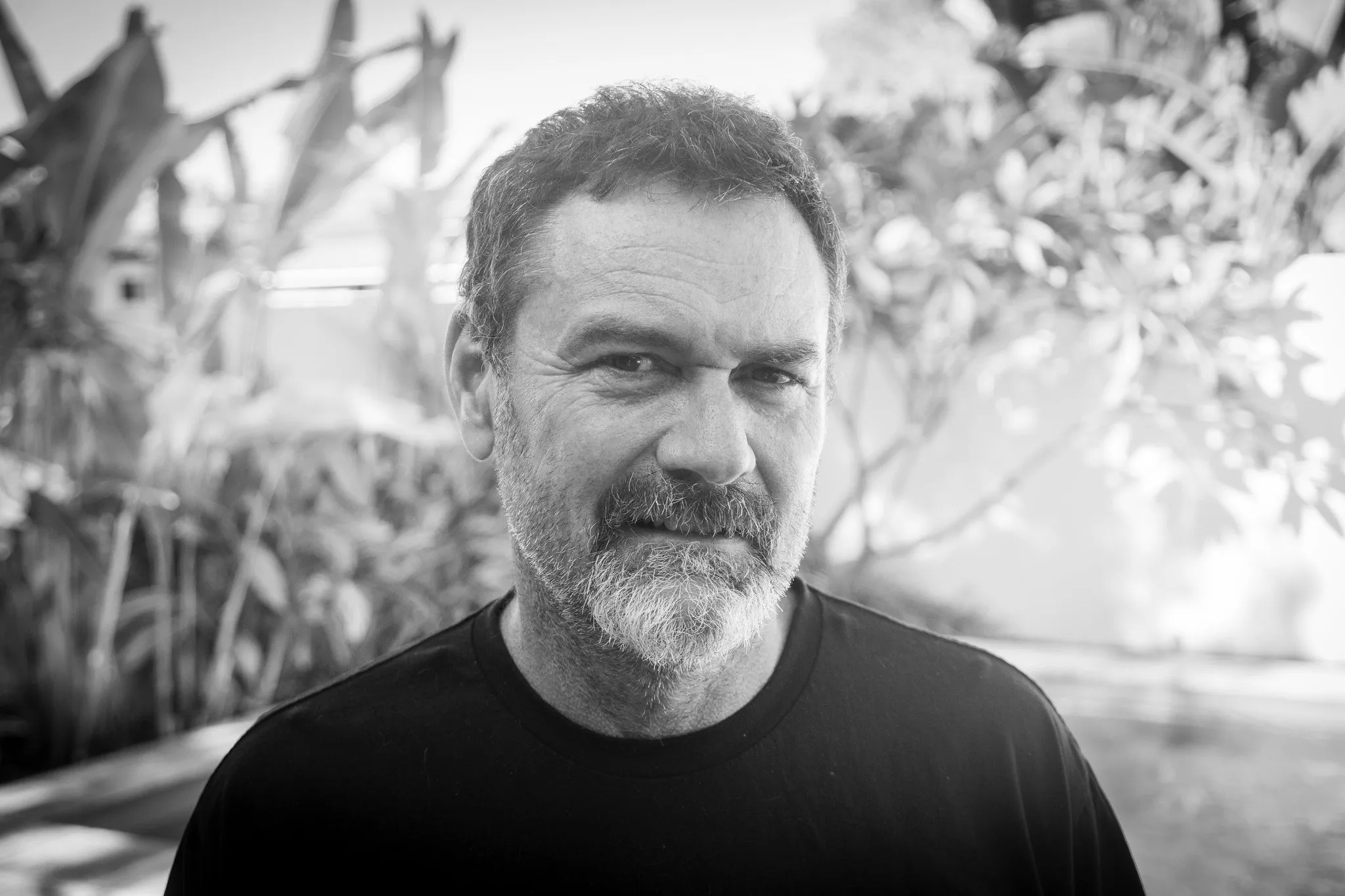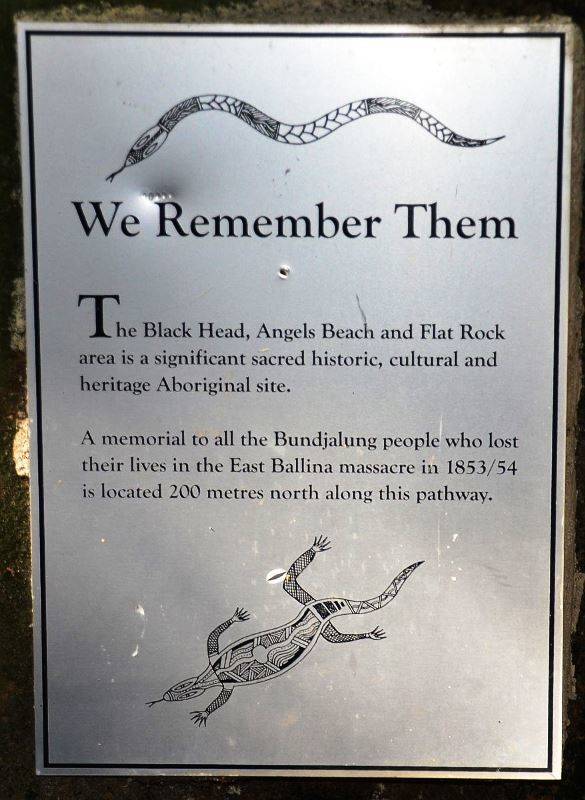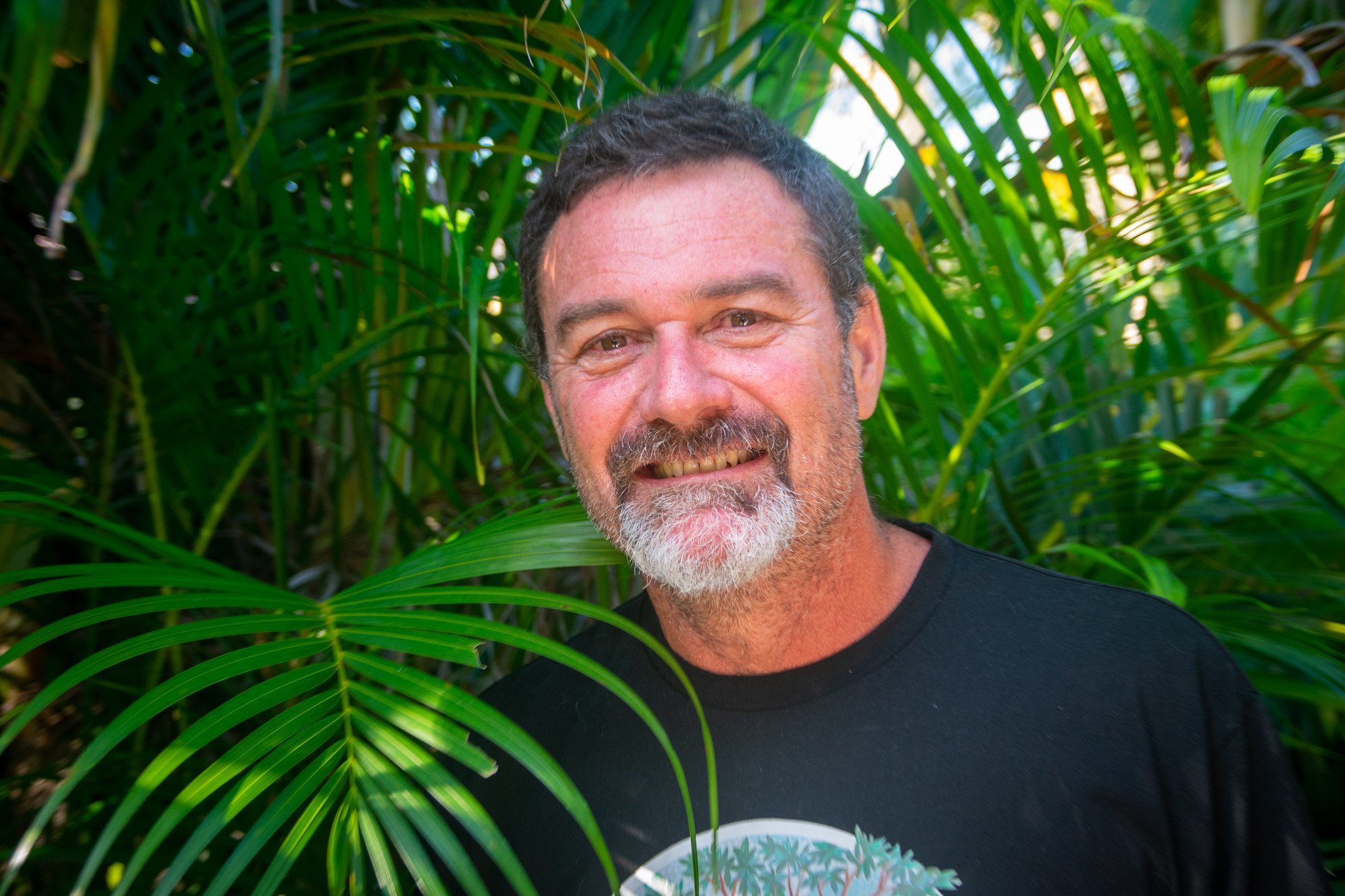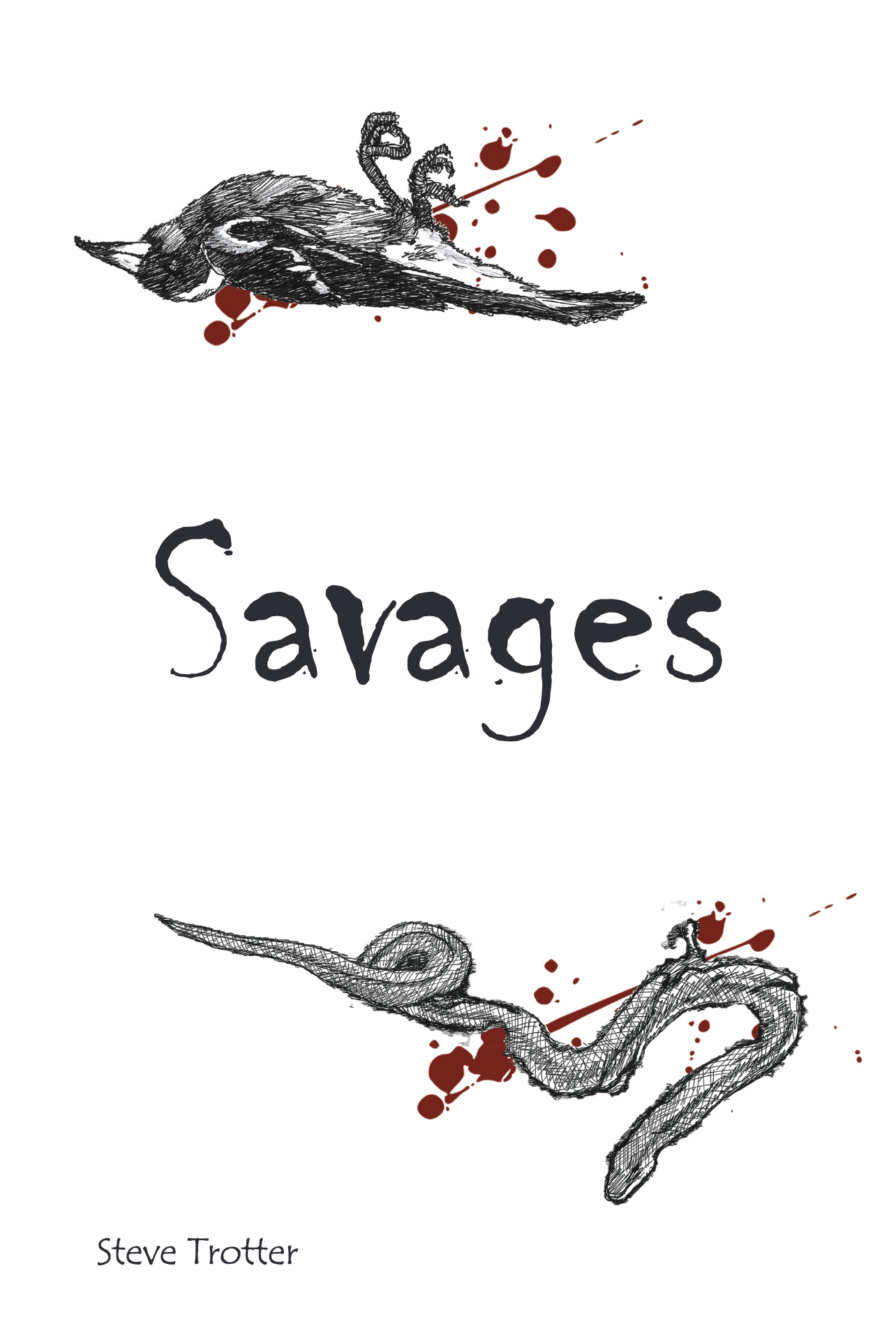
Local teacher and author Steve Trotter is about to finish a new book about Ballina’s frontier history which he describes as a piece of truth-telling that will ‘rock quite a few boats’.
Savages is the sequel to Mr Trotter’s book for young adult readers The Magpie and the Snake, which wove myth and history together to tell the story of the Nyangbal people from pre-colonial times to the arrival of Europeans.
The forthcoming book is currently being vetted by his team of editors (English teachers and colleagues) and his Nyangbal consultation group, the Ballina mob.
The sequel, Savages, covers the clash of civilisations between colonists (Yirahlee) and Nyangbal people, beginning in the 1800s.
Steve Trotter says this new book is the latest stage of a project which has been 28 years in the making, drawing upon both written and oral history, with everything having to be approved by his consultation group. ‘I’m really just the middle man here,’ he said. ‘It’s their story, I’m just the conduit.’

Black history
Mr Trotter says over his years in Ballina he became increasingly aware of layers of history beneath the surface, with visible links including special trees, springs and middens.
He says a lot of artifacts have been destroyed, or pushed aside, particularly around Angels Beach and along North Creek.
‘Ballina used to have a thing like the bunya nut festival, or bogong moth festival, and it was the oyster festival,’ he said. ‘Every five years the mobs had their own set spot along the creek. They’d come in, feast on the oysters and share stories, dance, arrange weddings. There were games, tree climbing competitions…’
Some of these stories are told in The Magpie and the Snake. Although there are mythic elements, the book’s strength is its very human characters, with recognisable qualities and weaknesses that anyone can relate to.
‘That first book deliberately had a black cover to represent the Indigenous people’s skin color, with a little bit of white because Henry Rous turns up in his boat,’ explained Mr Trotter. ‘So we get this little fleck of Western culture that sort of intrudes, but the book is predominantly about Indigenous culture. Let’s celebrate it.
‘In the sequel we see the colonists dismantle all of those things that had been built up over thousands of years in the first book. It describes the impact of the colonists’ invasion of Ballina. Time is condensed, but it’s all historical fact.’
East Ballina has a grim place in Australian frontier history as the site of a massacre in the 1850s of forty or more local people by white and native police, with murders recorded from what is now the golf course to Black Head.
‘The massacre itself is all based on the fact that the bush police from Brisbane came down here,’ said Mr Trotter.
‘Rumours were that one of the trackers had a beef with one of the locals, and arranged to attack them. But I don’t know, I think there’s a bit of debate around that. Because they used the same modus operandi at Evans Head, where they drove the mob over the cliff…
‘After that, surviving Indigenous mob were rounded up off the land, because the whitefellas wanted it. And then they were split up and put into different missions. Husbands and wives were split up. And they weren’t allowed to practice language, which as we know is heavily tied to culture and land. So there was a massive loss of culture and connection.
‘Later, Bubba Cook came back and brought his family with him to get away from some of the bad stuff that was happening on the missions.’
Can you talk a bit about how you’ve handled other people’s stories? How did that process start?
‘I don’t know really, to tell you the truth. It kind of ignited in me. Strangely, I just felt like that land kept telling me stuff,’ said Steve Trotter.
‘Marcus Ferguson, he does the same thing. You’ll walk in a spot, and he’ll go, “oh, yeah, something happened here” or, he’ll read the signs and go, “they would have had a campsite there”. And you’ll know that when rivers come together, that would have been a meeting place.’

Mr Trotter says it’s possible to follow the massacre trail from where the people were camping to Black Head.
He says the losses and tragedies of the colonial era led to a ‘big disconnect’ in culture.
‘It’s particularly bad because of how much the local mob have lost. Thankfully, you’ve got someone like Marcus Ferguson, who calls himself a black anthropologist, and he is just discovering site after site, he’s found hundreds now.
‘It’s a process of piecing together sites for the local mob, and rebuilding culture. When you walk that land, it talks to you. So I’m sure they’ll be able to pull back their culture.’
Mr Trotter says he’s hoping his books will help fill in the gaps which were created when the balance of thousands of years of tribal life was upset by the arrival of colonists.
‘It’s dreadful, but there’s hope,’ he said. ‘I don’t want to set up a massive point of conflict. It’s more about trying to find a way into healing. It’s a truth-telling, absolutely. But it’s about a reconciliation and understanding and acknowledgement; not of guilt because we weren’t there to be part of terrible things, but we can certainly feel ashamed.
‘We can certainly feel a sense of we’ve got to fix this somehow.’

Lots to learn
Mr Trotter says there is a lot to learn from Indigenous cultures who managed to live together side by side for so many thousands of years without major wars, replacing large scale violence with diplomacy.
‘Who is more savage? The people who consider themselves the civilised people who dress in ridiculous clothing for this type of weather? Or the people who are peaceful and don’t want to murder people?
‘What has stunned me the most as a history and English teacher is what the hell did they teach us at school? This is not right. You know, it’s a massive lie.’
Like the historians Bruce Pascoe and Henry Reynolds, now that his big story is almost told, Steve Trotter is wondering about his own Indigenous connections, and a grandmother who was adopted in 1917, as well as the role of the natural/spirit world in his writing. ‘I don’t have the willy wagtail chattering in my ears anymore!’
He feels that although he’s a full-time teacher, his deeper purpose for decades has been to share what he’s learned in his writing, and that process has been ‘really rewarding’ in itself.
‘After that it doesn’t matter what happens. Just get that story out,’ he said.
As with the last book, Steve Trotter intends to cover printing costs with the Kickstarter campaign (yet to be announced), and then give away copies to schools and other people who might benefit. Find out more at Magpie Publishers.





(Quote; 4th para from end).
‘Like the historians Bruce Pascoe and Henry Reynolds’.
Henry Reynolds – fair enough.
But Bruce Pasco now classed by Steve Trotter as an “historian”?
What’s your problem with Professor Bruce Pascoe being classified as a historian ? (A, not an). Or is that the Sky News echo chamber ?
He used original sources to write about past events. Surely that is the definition of “a historian”?
His most significant publication was based on archaeological discoveries, oral histories and examination of the diaries of the first European explorers and settlers. Isn’t that what historians do?
Or is it just that you think Henry Reynolds is white?
The dark-emu-exposed.org website has collected up all the findings from real anthropologists, who study stone age tribes that exist today explaining how Pascoe misconstrued the purpose of artifacts, and even presented Torries Strait islander finds as Aboriginal.
OMG Yes a website created by right-wing anti-intellectual bigots, haters & deniers is always a good source for your own questionable beliefs. Your claims about Pascoe are bullsh*t. Have you even read Dark Emu? Or just jumped on Bolt’s coat-tails?
The majority of experts think Pascoe’s research is reliable. Interestingly ALL the attempts to discredit his sources – mainly the diary accounts of the original white explorers & settlers – have failed. Opponents have resorted to your bilious website quoted ad nauseam by your avowed conservative nut-job heroes who are not trying to correct the historical record with alternative research that disproves Pascoe’s claims about indigenous farming & settlement patterns (that would be beyond their capabilities!). It’s just another attempt to silence research that changes the false narrative about Aboriginal Australia of savagery, ignorance & superstition that is the basis of white colonisation.
You really need the Aboriginals to have been Whiter don’t you. Why?
Your standard PNG tribesman alive today, living the dream as we speak, could explain why Pascoe’s theories don’t stack up.
What difference in your mind does it make if Aboriginals were more or less advanced? Why would you care?
Steve
Reading this makes my skin tingle, thank you for bringing the truth. I can’t wait to read your conduit! Thank you to Eli and all the Ballina mob for their patience and forbearance . Bulgulbeh !
Can’t wait to read Savages. My son is learning about the white Ballina History at the local Catholic primary school. If we are acknowledging the traditional owners of this land then let everyone know the ancient and modern history of this area too. Maybe with a better understanding, we can all live in harmony going forward.
“Those who control the present, control the past and those who control the past control the future.”
If you want to force a nation to do what you want – rewrite its history. History is the agreed narrative. People often confuse history(a story) with an actual chronology.
I think you might be confusing your opinion – again, with provable and logical facts previously unacknowledged, hidden and denied.
You could have just as easily spouted another well-known cliche that would have summed up the situation far more accurately : “The victors write the history”
The assertions and misinterpretations by Pascoe and his ilk are falsified by the artifacts and practices of current hunter-gatherer tribes. Pascoe & co are actually intimating Whiteness equates to legitimacy as a people, and thus they strive to en-Whiten Aboriginals and their previous culture.
Utter nonsense
Mr Loughrey sure has shown how safe and effective your paid experts are. The Lifeline number is 131114.